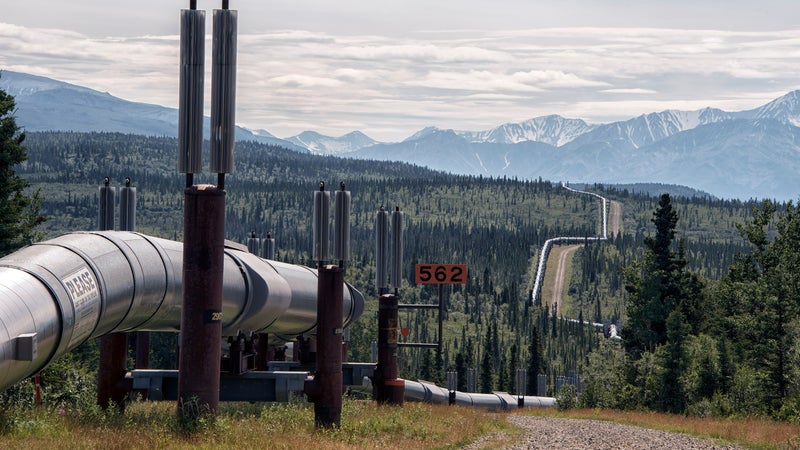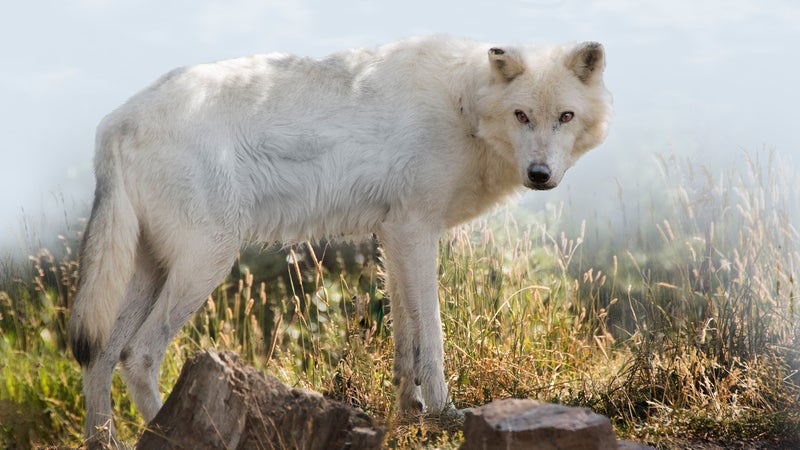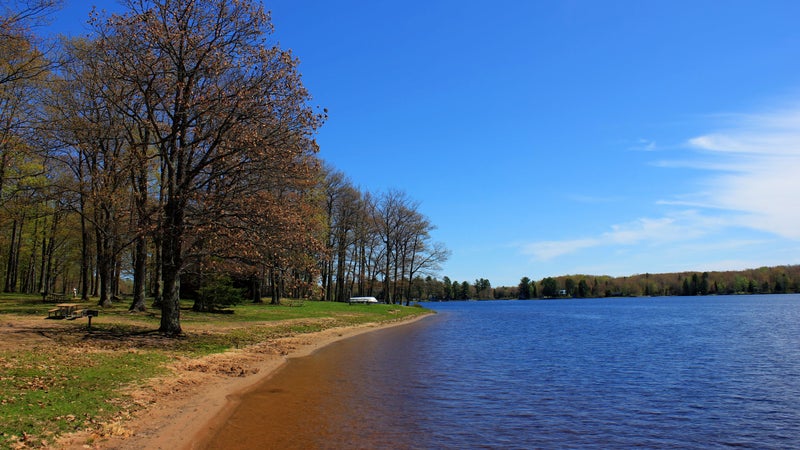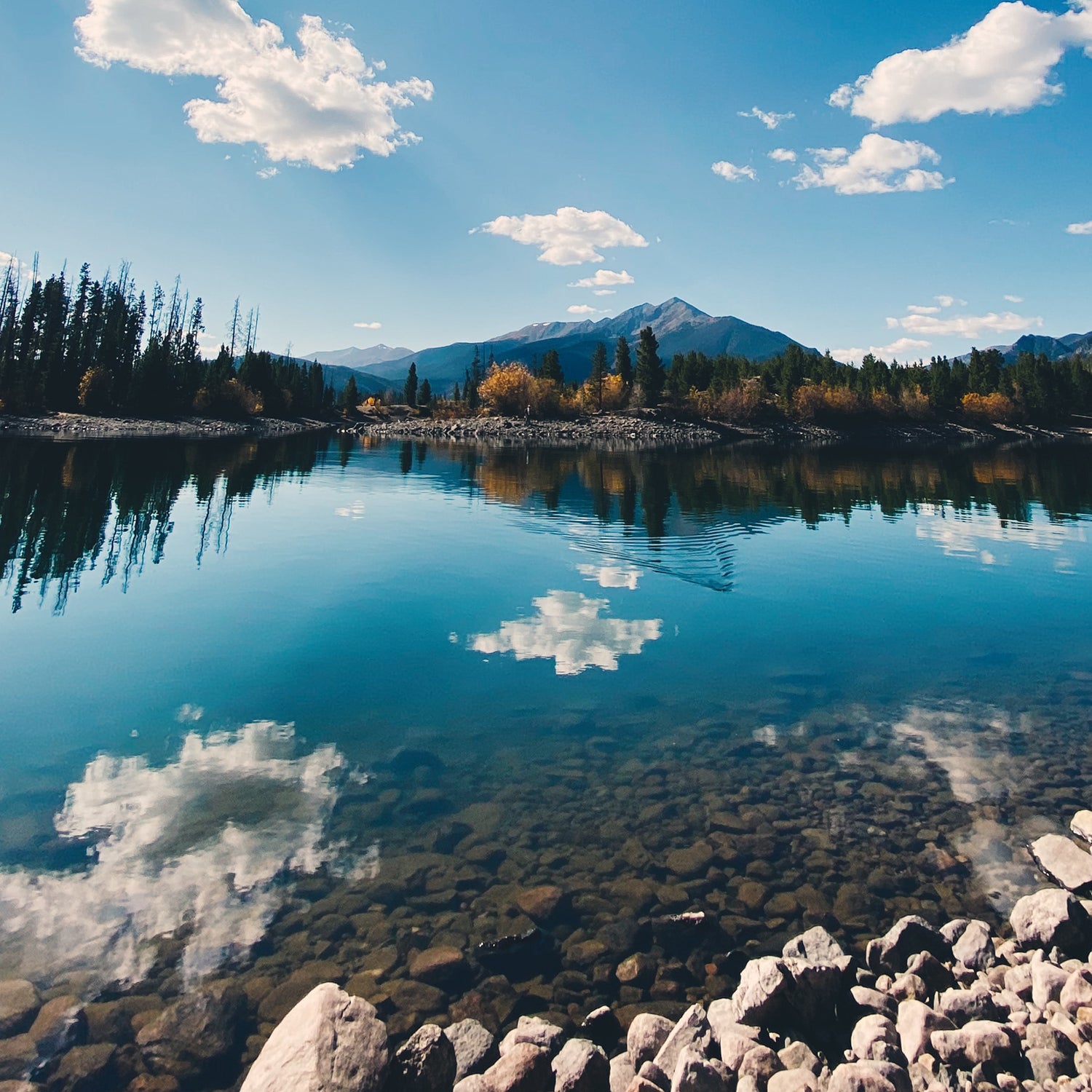If you╠řcare about being outsideÔÇöwhether that means finding solitude in the Grand Canyon╠řor just having breathable air in your neighborhoodÔÇöthis yearÔÇÖs election is crucial for the protection of recreational landscapes╠řand the sustainability of (among other things) . If youÔÇÖre voting for the environment, the presidential race is clear. One candidate has a plan to address , and the other has consistently eviscerated , , and or blocked .
But White House residency is far from the only thing on the November 3 docket. There are also down-ticket╠řracesÔÇöfrom congressional battles to ballot measuresÔÇöthat will have wide-ranging impact on wildlife, water rights, renewable resources, and more. Those issues donÔÇÖt╠řalways╠řfracture along party lines, and many of those races have big-time local and national implications.
There is a lot to sort through in this election cycle, so to help, IÔÇÖve highlighted the state races that have bearing on the issues I think are crucial, like climate change, outdoor-access equity, and healthy ecosystems. Dig into your hyper-local races, too, because change can come╠řfrom the bottom up. Voting is important, and you canÔÇÖt get pissed about the outcome if you donÔÇÖt exercise that right.
Alaska

Ballot Measure 1
would increase taxes on oil-production operations in the North Slope of Alaska. In the stateÔÇÖs coastal tundra, where oil formations underlay sensitive ecosystems, like caribou habitat, itÔÇÖs a question of how the financial benefit of the ecological damage can be spread.
Robin Brena, chairperson of , the campaign behind the ballot initiative, says that just╠řthree oil-production fieldsÔÇöAlpine, Kuparuk, and Prudhoe Bay, which are jointly owned by major extraction companiesÔÇömet those criteria, so the measure would really only╠řtarget big companies. Alaska, which is currently dependent on revenue from extraction for more than , should be compensated fairly for the extraction, says Brena. The opposition, a coalition called One Alaska, received 94 percent of its funding from five big oil and gas companies, which╠řeach contributed between $1.5 million and $4.5 million to the campaign. It╠řsays the measure would hurt its╠řbottom line and reduce its╠řability to invest in new projects and jobs.╠ř
In my view, companies should pay for their use and extraction of resources, especially in sensitive public lands.
Arizona
Senate Special Election
The is hotly contested, because 2020 was the stateÔÇÖs warmest summer on record (sorry) and because the incumbent, Republican Martha McSally, was appointed to fill John McCainÔÇÖs seat after he passed away during his term. So if her opponent, astronaut╠řMark Kelly, a Democrat, wins, he could be sworn in as early as November 30, changing the balance of power in the Senate. But itÔÇÖs not just about Washington, D.C. The next two years in Arizona could be climatically crucial as the state deals with a , , and to its public lands.
McSally, who gets the ninth most money from oil and gas in the Senate, voted for the Great American Outdoors Act╠řand helped lead the , but sheÔÇÖs been╠řcategorically╠řbad on public-land protection and pollution. The League of Conservation Voters put her on its╠ř this year. Kelly, on the other hand, says heÔÇÖs seen the impacts of deforestation firsthandÔÇö!╠řHeÔÇÖs been endorsed by the Sierra ClubÔÇÖs Grand Canyon Chapter and the League of Conservation Voters for his science-based plan╠řto address climate change in the desert.╠ř
Colorado

Proposition 114
A yes vote on ╠řwould allow Colorado Parks and Wildlife to reintroduce gray wolves in western Colorado starting in 2023. If it passes, it will be the first time voters anywhere in the country╠řwill have a say in wolf reintroduction. The last wolf was shot in Colorado in the 1920s, itÔÇÖs the only state in the Northern Rockies that doesnÔÇÖt have a or management plan, and the issue of reintroduction has been volleyed around for more than 20 years. Gray╠řwolves are currently federally protected by the Endangered Species Act, but thereÔÇÖs talk of ╠řthem and turning over management to states and tribes, because populations have rebounded in the Midwest and Pacific Northwest thanks to local programs there. In Colorado, proponents say reintroduction will create a healthy corridor for the apex predators between Canada and Mexico, and that wolves create a positive trophic cascade for ecosystems. Opponents posit╠řthat this proposition gives voters power thatÔÇÖs better left to wildlife managers and biologists, and that reintroducing wolves will threaten ranching and hunting economies that╠řhave╠řlong been crucial in western Colorado.╠ř
Third Congressional District
In June, Republican House representative Scott Tipton (the guy who invited the Bureau of Land Management to Grand Junction) lost his primary in a shocking upset to first-time candidate Lauren Boebert, who garnered attention for her pro-gun, open-carry, anti-government stances. SheÔÇÖs a lightning rod, and sheÔÇÖs , a former county commissioner and state House representative from Steamboat Springs, who is known as a pragmatist╠řand an environmentalist. The Third District, which covers more than a third of the state, includes oil and gas communities on the Western Slope and recreation hubs like Steamboat, Durango, and Aspen, so the future management of public lands and the balance between extraction, agriculture, and recreation is tricky and important there. What worries me is that Boebert hasnÔÇÖt put forward any policy plans on that front (or really any other front)╠řbesides saying sheÔÇÖs pro drilling.╠řMitsch Bush, on the other hand, has a legislative history of supporting agriculture, water rights, and land conservation (and she used to work for ), as well as the environmental ethic to be an effective representative.
Florida
Sixteenth Congressional District
The Gulf Coast of Florida has been hit hard by a rash of environmental issues, from to hurricane ╠řto╠řsea-level rise, and , former Democratic Florida House representative Margaret Good, who garnered an early for her action on water issues, is running a tight race against seven-term╠řRepublican incumbent Vern Buchanan. Buchanan has a of 22 percent from the League of Conservation Voters. HeÔÇÖs voted against offshore drilling, which is nice, but heÔÇÖs also undercut larger-scale environmental protections╠řand any kind of wildlife bill that doesnÔÇÖt directly touch Florida. This is╠řan area that needs action, and prioritizing broader thinking is crucial to slowing the impacts of climate change on all of our coasts. Good, an environmental lawyer, championed environmental research and regulation during her time in the statehouse, and sheÔÇÖll likely keep doing it in Congress.
Michigan

Proposal 1
A yes vote on , the Use of State and Local Park Funds Amendment, would modify the way╠řthe stateÔÇÖs park funds (which come from mineral, oil, and gas leases and royalties)╠řcan be spent. It would remove a cap on the funds╠řand allow for money to be earmarked for╠řrestoration, operations, and capital improvements, in addition to conservation. The Sierra Club , worried it will take funding away from the conservation of new lands, but a broad coalition of other local and national environmental groups, like the Nature Conservancy and the Michigan Audubon Society, . They say it allocates more funding, and that you need to take care of places once you protect them. I tend to agree.╠ř
State Senate Race
Lindsay Bourgoine, director of policy and advocacy for the Action Fund, says that in the competitive , moderate Democratic incumbent Gary Peters has a strong of pushing through environmentally friendly legislation. HeÔÇÖs spearheaded recycling bills and funding╠řfor fisheries science in the Great Lakes. Peters, described as having a ÔÇť,ÔÇŁ also has a 100 percent lifetime score from the League of Conservation Voters. HeÔÇÖs running against charismatic former Army Ranger John James, a Republican businessman whose environmental platform is scant. James╠řsays he supports President ObamaÔÇÖs interagency Great Lakes Restoration Initiative, which aims to clean and protect the lakes, but that largely heÔÇÖs for environmental deregulation.╠ř
Montana
State Senate Race
In one of the (and the most expensive in Montana history), Democratic governor Steve Bullock is running against incumbent Steve Daines. How different could two white guys in their fifties╠řnamed Steve be?╠řIn Montana, where outdoor recreation is a big slice of both the culture and the economy, and where public-land governance impacts big players in ranching and oil and gas, their differences are notable, and both men are trying to talk about their environmental track records. Daines shepherded the showy Great American Outdoors Act, along with Colorado senator Cory Gardner,╠řbut his longer record shows votes to defund the same act, particularly during╠řyears when he wasnÔÇÖt up for election, and bills to rescind protections for public land. Bullock has taken campaign contributions from oil and gas, but he also initiated the Montana Climate Assessment╠řand has led the charge to remove╠řdangerous acting BLM head William Perry Pendley, whose appointment was never approved by Congress, which is in violation of the Constitution. As governor, Bullock has done a good job of listening to constituentsÔÇÖ climate, water, and land-use concerns and acting on them, and I believe heÔÇÖll do the same as senator.
Nevada

Question 6
Nevadans might feel some d├ęj├á vu when they look at their ballots and see , a proposed amendment that would╠řrequire utilities to get at least 50 percent of their electricity from renewable resources by 2030. ThatÔÇÖs because, in Nevada, any amendment to the state Constitution has to be approved by voters twice, in consecutive elections, and this is Question 6ÔÇÖs second round. The same amendment passed with 60 percent of the vote╠řin 2018, so in theory, this could just be a walk into home plate, but if it doesnÔÇÖt pass, the amendment will be permanently killed, setting back progress on carbon reduction.╠ř
Washington
GovernorÔÇÖs Race
Washington governor Jay Inslee gained national attention when he entered the Democratic╠řpresidential primary on a climate-focused ticket. He washed out of the race, but his climate plans went on to become part of the DNCÔÇÖs platform. As governor heÔÇÖs pushed╠řthe stateÔÇÖs clean-energy portfolio and worked on salmon and orca conservation, which are hot topics in the Puget Sound area. In , heÔÇÖs running against small-town╠řpolice chief Loren Culp, who identifies as a sportsman╠řand whose platform as such is slightly obtuse:╠řÔÇť I will measure Washington Department of Fish and WildlifeÔÇÖs performance by a simple set of questions: Are there fish in the water? Are there deer and elk on the land? Are sport hunters content? Are commercial fishermen content?ÔÇŁ The race is an ideological battle over government overreach (arenÔÇÖt they all?), but it has the power to change the direction of the stateÔÇÖs climate momentum. Inslee is ╠řof pushing climate policy on the state and national level. LetÔÇÖs keep him there.


